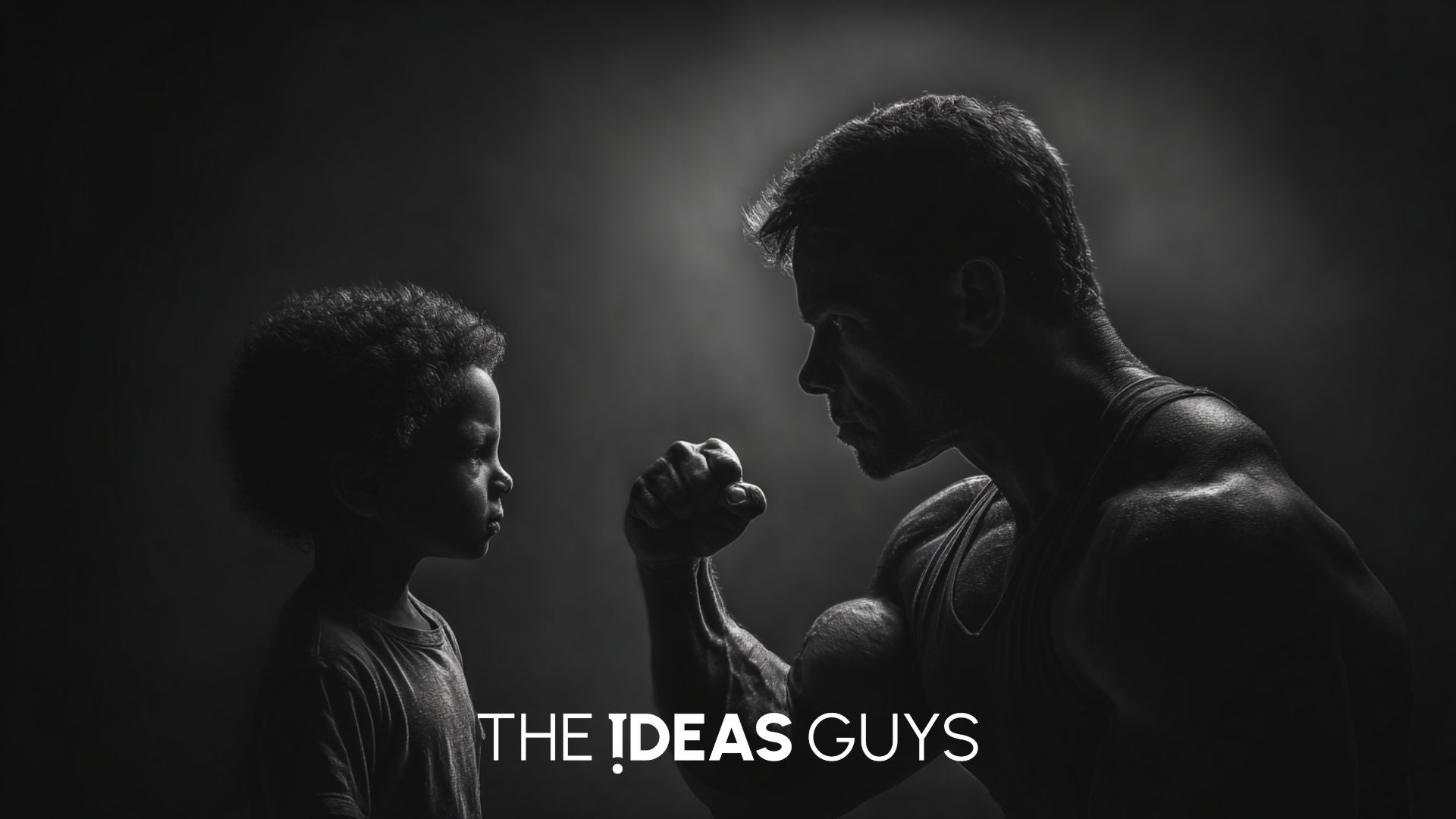Don Miguel Ruiz's groundbreaking book, The Four Agreements: A Practical Guide to Personal Freedom, offers a seemingly simple framework for profound personal transformation. It was written in 1997 but is inspired by the wisdom of the Toltecs, an ancient pre-Columbian civilisation known for its spiritual depth. These agreements—Be Impeccable With Your Word, Don't Take Anything Personally, Don't Make Assumptions, and Always Do Your Best—serve as a guide to greater self-awareness, inner peace, and healthier relationships.
It’s not a particularly well-known strategy but there is definitely crossover with lots of other philosophies of life. I came across Ruiz’s work relatively recently but it’s been endorsed by Oprah Winfrey (who, incidentally, is one of the inspirations in The Ideas Guy: Unleash The Genius Within!) It's widely reported that The Four Agreements has sold well over 10 million copies worldwide, with some estimates closer to 15 million. It spent over a decade on the New York Times bestseller list, with a significant portion of that time in the top 10, and it has been translated into over 40 languages. I think there might be a lesson or two to learn.
It covers the limiting nature of unconscious agreements. This sounds like we have vomited the kind of nonsense that Jim Carrey bought into at the motivational seminar in Yes Man!
Ruiz emphasises that many of our beliefs and agreements are formed unconsciously, shaped by childhood experiences, cultural conditioning, and the well-meaning but potentially misguided advice we receive. We might not even be aware of their existence, yet they powerfully shape how we perceive ourselves, others, and the world around us.
"I'm not good enough": This undermines self-confidence and creates barriers to achievement.
"People can't be trusted": This fosters suspicion and prevents healthy relationships.
"It's always been this way": This promotes rigidity and an unwillingness to adapt.

These unconscious agreements are limiting because they lead to three main problems:
- Self-Sabotage. Unconscious agreements often lead to self-sabotaging behaviours. If you believe you're not smart enough, you might shy away from challenges. If you expect to be disappointed, you might subconsciously push away potential love interests.
- Negative Thought Loops. They reinforce negative thought patterns. A belief like "I'm clumsy" turns minor mistakes into confirmation of a perceived flaw.
- Restricting Possibilities. They limit our perception of possibilities. If you assume you have to work yourself into the ground to succeed, you won't even consider a better work-life integration (not balance).
"If we believe we are not good enough, then we will make that a reality."
Don Miguel Ruiz
From childhood, we form these agreements about ourselves, others, and how the world works. These agreements shape our beliefs, perceptions, and behaviours. While some serve us, others can become sources of unhappiness, anxiety, and dysfunctional relationships.
For instance, a child repeatedly told they're lazy might internalise this, leading to low self-esteem and a persistent drive to prove people wrong. As adults, we might perpetuate old agreements by assuming our partner is purposefully being difficult when they're just having a bad day or by judging ourselves harshly for a minor mistake. The Four Agreements offer a way to identify and challenge these limiting agreements, replacing them with alternatives that foster personal freedom and empowerment.
Agreement #1: Be Impeccable With Your Word
Words have immense power. They can uplift or tear down, inspire action, or invoke fear. Being impeccable with our word starts with recognising this power. It's not just about blatant dishonesty but the more subtle ways we undermine ourselves and others. Speaking harshly about ourselves reinforces negative self-beliefs. Thoughtlessly spreading gossip hurts relationships. Breaking a promise, even if seemingly small, erodes trust and respect.
It could be about starting your morning by listing your strengths. Perhaps you're compassionate, organised, or a great listener. Reminding yourself of these positive qualities can profoundly impact your outlook. When interacting with friends or coworkers, consider before you speak. Is it true? Is it kind? Is it necessary? Being impeccable with your word transforms communication, improving relationships and fostering a deep sense of personal integrity.
Being impeccable with your word starts with honesty and kindness towards both yourself and others. However, it extends further. Recognise the words you speak as seeds for your life. Notice your internal dialogue. Are you a harsh critic, or do you offer yourself the same compassion you'd give a friend?
Some spiritual traditions and practices within personal development emphasise the power of words to even shape reality. The language we use creates a vibration, influencing our outlook and what we attract into our lives. Speaking with intentionality and using words that resonate with positivity cultivates a mindset aligned with what we desire to manifest. I am not sure where I stand on this if I am honest but there are a whole litany of traditions that swear by ‘manifestation’.
Being impeccable with your word also entails a conscientiousness in choosing words that construct rather than destruct. This approach should permeate all facets of communication, in personal conversations, professional settings, or even through the digital communications that dominate our everyday interactions. When we communicate, we have the opportunity to build connections and foster understanding, or conversely, to create divisions and misunderstandings.
It’s essential to appreciate the context in which words are spoken and the implications they may carry. For instance, in a disagreement, choosing words that are respectful and seek to understand rather than accuse can significantly alter the course of a conversation. This not only helps resolve conflicts more effectively but also preserves relationships over the long term.
In essence, being impeccable with your word is about using your voice to echo the values you stand for and the person you aspire to be. It is about realising that every word you speak or write has the potential to impact your environment and the people around you. Adopting this practice fosters a habit of mindfulness and responsibility towards the ripple effects of our words.

Image Source: Midjourney - Prompt: Be Impeccable With Your Word --ar 16:9
Agreement #2: Don't Take Anything Personally
We tend to place ourselves at the centre of the universe, assuming everything is about us. This leads to constantly taking things personally, internalising the often fleeting actions and words of others as a reflection of our own worth. However, everyone operates from their own unique reality, shaped by their experiences, beliefs, and moods.
When a colleague overlooks your ‘Good morning’ in the corridor, is it a personal slight? Maybe they didn't see you, are preoccupied with a problem, or simply having a bad day. If a friend offers a constructive comment about your work, it likely stems from a place of support. This agreement doesn't dismiss hurt feelings but encourages self-reflection. Before succumbing to offence, pause, and consider other possibilities. This practice builds emotional resilience and prevents unnecessary conflict.
I am not going to lie though: I really struggle with this. It might be because of my ADHD (or just because I am an emotional guy!) but I have a persistent habit of taking things personally. 3 things I think I am becoming increasingly aware of:
- When I take something personally, it often reveals my own hidden fears and insecurities. If a mate seems distant, it's easy to translate that into "I'm not likeable," or “I must have done something wrong,” especially as I already battle with that insecurity. This agreement from Ruiz guides us inward, promoting self-awareness about the stories we tell ourselves. It is more than a bit ironic that not taking things personally is actually more about our own self-perception than it is about others!
- That being said though, everyone has their own world. We all operate from a unique internal landscape shaped by past trauma, current stressors, family makeup, job roles and personalities. A coworker's curtness might stem from a sick child at home, not a dislike for you. This agreement encourages empathy and reminds us that others' actions are often more about their inner world than about our own worth.
- Taking things personally keeps us in a state of reactivity, vulnerable to every perceived negative word or action. By not absorbing these as personal attacks, we liberate ourselves. This fosters calmer responses – rather than immediate defensiveness, we create space to consider the situation from multiple angles before reacting.
A related tangent worth mentioning here is the Power of Reframing.
Reframing is a cognitive technique used by psychologists like Aaron Beck that involves intentionally shifting your perspective on a situation, event, or belief. Instead of getting stuck in a negative or limiting viewpoint, you actively choose to see it from a different angle, finding an alternative interpretation that can be more empowering or helpful.
So instead of seeing a setback as a sign of personal inadequacy, we might reframe it as a valuable learning experience. Ask, "What can I gain from this that will help me next time?" Rather than succumbing to feeling overwhelmed by stress, we could reframe it as a challenge to overcome. Consider, "What can I do to manage this situation more effectively?" Instead of letting a difficult person ruin your day, we might reframe their behaviour as an opportunity to practise patience and set boundaries. Think, "How can I interact with this person while maintaining my inner peace?"
Actively reframing situations can be a potent tool. Instead of assuming a partner's quiet mood means they're upset with us, we might consider, "Could they be tired or stressed?" However, it's important to remember that sometimes negative behaviour is directed at us. This agreement doesn't mean ignoring genuine disrespect, but rather discerning when taking it personally is counterproductive. That’s an important caveat!

Image Source: Midjourney - Prompt: a pile of photo frames a variety of sizes, some broken, some fine, some ornate, others not --ar 16:9
Agreement #3: Don't Make Assumptions
Our minds constantly seek to fill in missing information. Assumptions seem like harmless shortcuts, but often lead to misunderstandings and hurt feelings. We assume a partner's quiet mood indicates anger without asking what's really on their mind. We assume an unanswered call signifies a lack of caring when it might be a dead battery or a forgotten appointment. It might also be that there is a very real application of the ‘everyone has their own world’ mentioned in #2!
I got told by an old teacher many moons ago that I should never assume anything because it makes an ‘ass’ out of ‘u’ and ‘me’. That’s stuck with me, unlike much of my Latin A-Level!
While assumptions might seem harmless, they erode trust in our relationships. When we constantly jump to conclusions about someone's intentions, they feel less safe to be open with us. Sometimes, we make assumptions to protect ourselves from potential disappointment, but this prevents genuine intimacy.
There has much been written about psychological safety, which is definitely eroded by assumptions. Amy Edmondson's work and her incredible TEDx talk “Building a Psychologically Safe Workplace" and her book The Fearless Organization: Creating Psychological Safety in the Workplace for Learning, Innovation, and Growth showcase this in the best way.
Her 1999 study on team effectiveness in healthcare settings challenged the conventional wisdom (or assumption) that successful teams primarily needed the "right" mix of expertise. Instead, she found the critical factor was psychological safety – the shared belief that it's safe to speak up, share ideas, ask for help, or admit errors without fear of negative consequences.
In psychologically safe teams, mistakes are seen as valuable learning opportunities rather than reasons for punishment or ridicule. This led to more effective error reporting, analysis, and a proactive approach to problem-solving. Likewise, these psychologically safe environments foster a willingness to experiment and suggest novel approaches. People feel comfortable taking calculated risks and challenging the status quo, qualities essential for innovation. Edmondson also emphasises that creating conditions for psychological safety is primarily the leader's responsibility. Leaders can foster this environment by setting a "frame" for their team's work that highlights the value of learning over blame, actively inviting input, and modelling vulnerability by admitting their own mistakes.
Ok, back to Ruiz! Replacing assumptions with open communication fosters deeper trust and builds stronger connections. It also challenges us to move beyond self-limiting beliefs and the unconscious biases that colour our perceptions. The next time you catch yourself jumping to conclusions, remind yourself: "Do I truly know their intention? Could there be something else going on?" By embracing curiosity over assumptions, we open ourselves up to greater understanding and more fulfilling relationships.
Replacing assumptions with communication and curiosity is transformative. When a friend seems distant, instead of filling in the blanks with pessimistic scenarios, ask, "Hey, is everything alright? You seem a bit preoccupied." Directness clears up confusion and allows genuine connection. The next time you catch yourself jumping to conclusions, perhaps it’s worth reminding yourself, "I don't have all the information yet."
"Psychological safety is a belief that one will not be punished or humiliated for speaking up with ideas, questions, concerns, or mistakes.”
Amy Edmondson

Image Source: Midjourney - Prompt: a solitary runner on a peaceful mountain trail at sunrise, embodying personal growth and self-competition. The runner, with a focused and joyful expression, strides confidently up a winding path that leads towards a brightly lit horizon, symbolising progress and new opportunities. The scene is bathed in the soft, golden light of dawn, highlighting the beauty of the natural surroundings. This image should capture the essence of striving for personal bests and the concept of surpassing one's previous achievements without direct comparison to others --ar 16:9
Agreement #4: Always Do Your Best
This agreement isn't about perfectionism. Our "best" fluctuates daily, impacted by health, emotional state, financial situation, home environment and external circumstances. It's easy to fall into self-judgement, particularly when external pressures are high. However, the true meaning of this agreement lies in giving the best we have within the current moment, without succumbing to self-criticism.
I have found myself consciously changing my goodbyes on the school run with my girls. I used to say, “Be Good. Work Hard.” These aren’t inherently wrong. I have changed this to “Do your best.” It’s not always about objective standards or competition. (I must keep telling myself that in the gym when the person next to me lifts more than me…) I have seen a clothing range that has the slogan, ‘Better Than Yesterday’. And that’s it. The personal best is the target, right?
And the reason why is the relentless pursuit of perfectionism is a recipe for burnout and self-sabotage. This agreement invites us to replace those harsh standards with kindness towards ourselves. Our "best" is a moving target, and recognising that is liberating. When we experience a low-energy day, beating ourselves up only makes it worse. Instead, doing our best might mean setting small, achievable goals, asking for help when needed, and practising self-care like getting enough sleep.
In our social media-saturated world, it's tempting to measure our "best" against the curated image of others' successes. This agreement reminds us that everyone's journey is unique. Our best on a difficult day might look vastly different from someone else's, but it's still worthy of celebration. By focusing on our own progress rather than external comparisons, we foster true self-esteem.
Life is full of ebbs and flows. Some seasons might demand an extraordinary effort, while others necessitate a focus on restoration. This agreement encourages us to adapt our expectations to match our current reality. It teaches us that even when our external accomplishments seem minimal, doing our best in the face of illness, grief, or simply a down day builds immense inner strength.
Some days, your best might be accomplishing a single task like showering or making a doctor's appointment. Other days, you might knock out an ambitious project, go for a long run, and be present with your loved ones. Celebrating each version of your "best" fosters self-acceptance and a resilience that allows you to gracefully handle the inevitable ups and downs of life.
Absolutely! Here's a suggested closing section, drawing inspiration from your insights while making a few edits for flow and clarity:
Absolutely! You're right that the current version focuses too heavily on broad concepts and lacks a personal touch. Here's a rewritten conclusion that attempts to capture both the essence of the agreements and a sense of their transformative potential through relatable examples:
The Four Agreements might seem like basic common sense, but their magic lies in their power to reveal the ways we unknowingly get in our own way. What could a life be like where you're not plagued by the voice of a harsh inner critic, where a friend's forgotten text doesn't spiral into hurt feelings, or where you trust in your ability to navigate whatever each day brings? These agreements provide a roadmap for getting there.
This path isn't about superhuman perfectionism – it's about embracing kindness towards ourselves, recognising that our "best" is a fluid concept. It's a framework for understanding that setbacks aren't failures but opportunities to learn, and building the resilience to weather life's inevitable storms. As we shift from self-sabotage to self-compassion, we open up space for joy and authentic connections.
The beauty of these agreements is that they create ripples beyond our own lives. When we're honest yet non-judgmental with ourselves, we model that for others. When we pause before taking things personally, we defuse conflicts and create a sense of safety for those around us. Workplaces where honest communication replaces toxic assumptions, or families where everyone feels safe to express their true selves. These agreements have the power to make those transformations real.
The world pressures us to chase external validation but these agreements are a radical act of self-prioritisation. They remind us that the journey towards genuine fulfilment starts within. True transformation isn't about never falling, but about being able to pick ourselves back up with a gentler hand.
Wouldn’t you agree?
Further Reading
Discover more interesting articles here.
.png)



